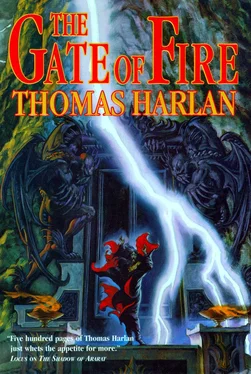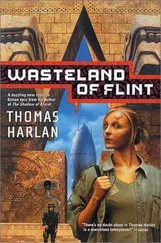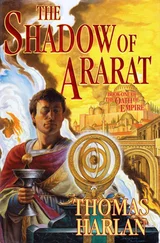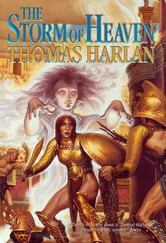Thomas Harlan - The Gate of fire
Здесь есть возможность читать онлайн «Thomas Harlan - The Gate of fire» весь текст электронной книги совершенно бесплатно (целиком полную версию без сокращений). В некоторых случаях можно слушать аудио, скачать через торрент в формате fb2 и присутствует краткое содержание. Жанр: Фэнтези, на английском языке. Описание произведения, (предисловие) а так же отзывы посетителей доступны на портале библиотеки ЛибКат.
- Название:The Gate of fire
- Автор:
- Жанр:
- Год:неизвестен
- ISBN:нет данных
- Рейтинг книги:4 / 5. Голосов: 1
-
Избранное:Добавить в избранное
- Отзывы:
-
Ваша оценка:
- 80
- 1
- 2
- 3
- 4
- 5
The Gate of fire: краткое содержание, описание и аннотация
Предлагаем к чтению аннотацию, описание, краткое содержание или предисловие (зависит от того, что написал сам автор книги «The Gate of fire»). Если вы не нашли необходимую информацию о книге — напишите в комментариях, мы постараемся отыскать её.
The Gate of fire — читать онлайн бесплатно полную книгу (весь текст) целиком
Ниже представлен текст книги, разбитый по страницам. Система сохранения места последней прочитанной страницы, позволяет с удобством читать онлайн бесплатно книгу «The Gate of fire», без необходимости каждый раз заново искать на чём Вы остановились. Поставьте закладку, и сможете в любой момент перейти на страницу, на которой закончили чтение.
Интервал:
Закладка:
Soft politician, he chaffed at himself. The boy doesn't even notice the weight of this metal.
The second key clicked and engaged a pin somewhere in the lock. Gaius put his shoulder into turning the handle and there was a grating noise as a bar rolled back inside the lock. The complaining screech it made seemed very loud, but Gaius knew that the sound would die quickly.
"Here we go," he said as the door cracked open a little. He put the key away and pushed at the panel. It swung in, creaking on its hinges with the weight of all that gold on the door facing. The dim light of a few candles showed inside, and Gaius slipped in with Alexandros close on his heels.
– |"This is all that is left? Just ashes?" Alexandros rolled a carved marble cylinder between his hands, making a tic-tic-tic sound on the top of a malachite coffin. The cylinder was about a foot long and intricately carved on the outside with scenes of men and horses and women and ships and the Forum. "It's so small!"
"Not much left of a man, once he's been rendered down." Gaius was poking around with a dagger in the niche that had held the cylinder. "I guess you Macedonians weren't much for saving the ashes, though."
"No," Alexandros said, his face pensive. "Wind and fire take the dead back to the gods. I sent many of my men home that way." Gaius looked up, hearing an unexpected thread of melancholy in the young man's voice. In the months since the youth's resurrection he had possessed a singularly positive demeanor. The events of his death and return to life did not seem to bother him at all. Gaius had thought that the youth only took it as his due to rise from the dead and walk among the living again.
"I wonder why they did not honor me that way." Alexandros' face, half illuminated by the light of the little candle-lantern that Gaius had brought, seemed drawn and marked with terrible fatigue. "Did they hate me so, after all that we had suffered together, to leave me trapped on earth, imprisoned in gold and lead?"
Gaius slid the dagger back into its copper sheath and stood up carefully and backed out of the brick-lined alcove that held four recessed niches. He untied a silk bag from his belt, where it had been held with purple string, and shook it open.
"Even in death," Gaius said absently while he worked, "you inspired both hate and love, my friend. If the histories are true, terrible arguments followed your funeral. Blows were struck while you lay in state, your body not even cooled. Some of your generals demanded that you be sent to the gods immediately, but others argued that you should be returned to Macedon to be buried in the city of your fathers. Each man strove to better the others in his grief and love of you."
Alexandros made a face at this, and shook his head and shoulders, trying to shake off the image.
"They were dogs," the old Roman continued, his gray eyes in shadow, "that tore themselves apart once the pack leader was dead. It took two years for an army of craftsmen to build your funeral car, your catafalque. The great generals were already murdering each other for control of your Empire before you were even properly buried. It is said, by men who were there, that the procession of your funeral train took five days to pass. No greater tribute has ever been paid to a living man. Entire nations were beggared to build your coffin."
The Macedonian sat down heavily on one of the steps that lined the tomb. It was cold and dark, lit only barely by the little lantern. A domed ceiling receded above them, lined with niches and statues of the dead. The pale circle of light from the candle barely touched the young man's feet.
"Why did they dishonor the traditions of my people so? The sky should be my burial place!"
Gaius looked down upon the boy, weighing his words. "You were no longer a soldier, deserving a soldier's death," he said softly. "Instead you had become the Emperor. The embalmers who laved your body and put the death shroud upon you prayed for a day and night before entering the chamber where you lay, lest they be struck down for touching the body of 'not a man, but a god.'" Gaius knelt, putting one gnarled old hand on the boy's knee.
Alexandros looked up, his eye makeup streaked with tears. "And my son, my wife? My mother?"
"Dead," Gaius said in an even, toneless voice, "within a decade of your own death. Murdered by those in the court at Pella who hated you. No heir of your body survived. It is said that your son by Empress Roxane, born after your death, was strangled by Cassander. Even your magnificent Empire did not survive your death. By the time the funeral procession left Babylon for the west, five kingdoms stood where you had built one pan-Hellenic-Persian Empire."
Alexandros stared back the Roman, his eyes stricken. "To the strongest-" he whispered, and held a hand to his mouth.
"Ruin," answered Gaius Julius. The old Roman felt for the boy, feeling at last the death of his life's work and great dream. "All in ruin within a generation. In the end, they even fought over your body. You never reached ancient hallowed Aegae; you never lay in the tomb your soldiers had raised there with their own hands. Even in death, you were more than a corpse; You were a veritable icon and a prize for the most ambitious."
Alexandros snarled and stood up, his fists clenched. A vein throbbed in his forehead. "Was there no banner of passage for even my corpse? Did they not even honor that, the journey of the dead? Who stole the coins from my eyes?"
One of Gaius' eyebrows inched upward at the vehemence in the boy's voice. He suppressed a smile with difficulty. The irony of it all was delightful. Why shouldn't the body of a living god be a tool in the hands of conniving men? Is it not so now?
"The one who styled himself your brother, of course," Gaius said, gesturing at the cylinder on the floor. "The wily Ptolemy stole your entire funeral away as it passed through Syria. He took you back to Egypt and installed your body in a fabulous tomb-the Sema-where it lay in state for six hundred years. I looked upon it, when I was alive, and made homage to you-as tens of thousands had done-in the Temple of Ammon."
"Ptolemy"-Alexandros frowned and smiled at the same time-"that rascal! He would… he would dare such a thing. Boyhood friends should never be trusted. They never show proper respect!"
Seeing that the boy was ignoring him, Gaius dragged the marble cylinder over to him and began unscrewing the top of the urn. It was old and had once been sealed with a band of bronze, but that had corroded away in the intervening centuries. Gaius' hands were quick about their work; even with the door carefully locked behind them, there was no telling if the sentries might notice something and enter the tomb to investigate. The lid was still sticking, though. Gaius rummaged in the leather bag and found a cold chisel and a mallet. The mallet's head was lead with a woolen fleece tied around it to muffle noise. He wedged the cylinder between his boots and carefully lined up the chisel.
"Who won?" Alexandros' voice was businesslike again, and the melancholy tone had vanished. "When dogs fight, a new leader rises. Was it Ptolemy? Antiochus? Pray not that panderer Seleucus!"
Gaius looked up, the mallet in one hand and the other on the top of the cylinder. "None of them, lad. In the end it was brash young Rome that won. By the time of this puppy"-he tapped the top of the cylinder with the mallet-"the Republic had overthrown all of the Diadochai-your successors-and conquered the world. Well, save for Parthia…"
Alexandros frowned and looked around the tomb as if for the first time. "This was the best you could build, after all that? It's barely bigger than a minor temple in Thebes!"
Gaius raised an eyebrow and bent again to the urn. He carefully positioned the chisel and tapped softly at it with the mallet. After a moment, and despite a seemingly enormous noise, the top budged and then the old Roman could unscrew it.
Читать дальшеИнтервал:
Закладка:
Похожие книги на «The Gate of fire»
Представляем Вашему вниманию похожие книги на «The Gate of fire» списком для выбора. Мы отобрали схожую по названию и смыслу литературу в надежде предоставить читателям больше вариантов отыскать новые, интересные, ещё непрочитанные произведения.
Обсуждение, отзывы о книге «The Gate of fire» и просто собственные мнения читателей. Оставьте ваши комментарии, напишите, что Вы думаете о произведении, его смысле или главных героях. Укажите что конкретно понравилось, а что нет, и почему Вы так считаете.











